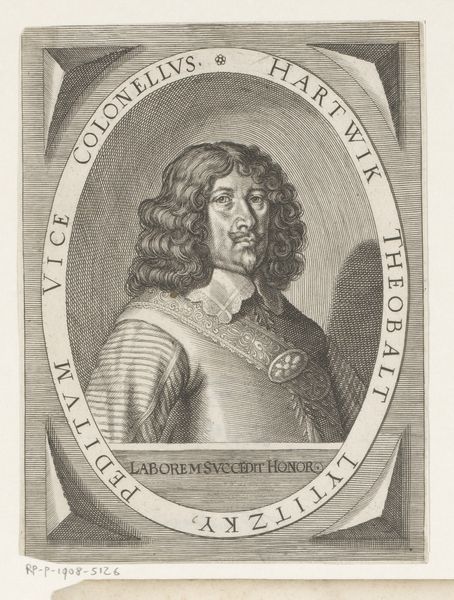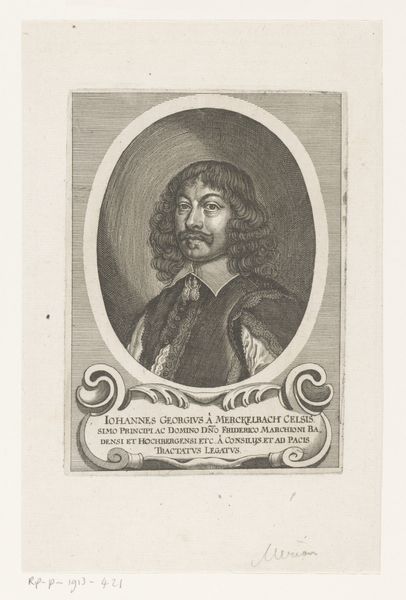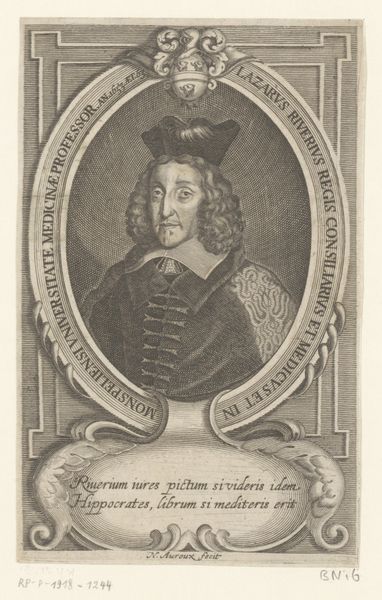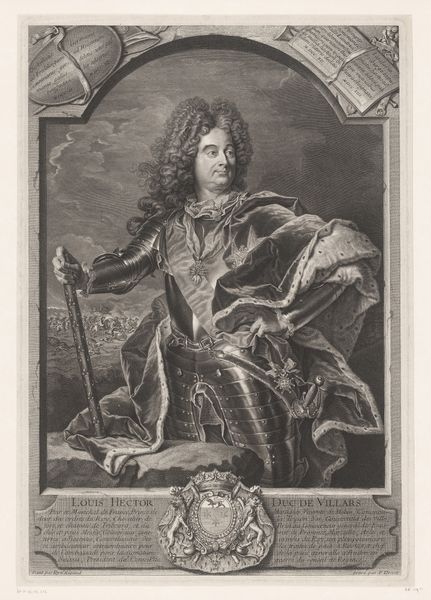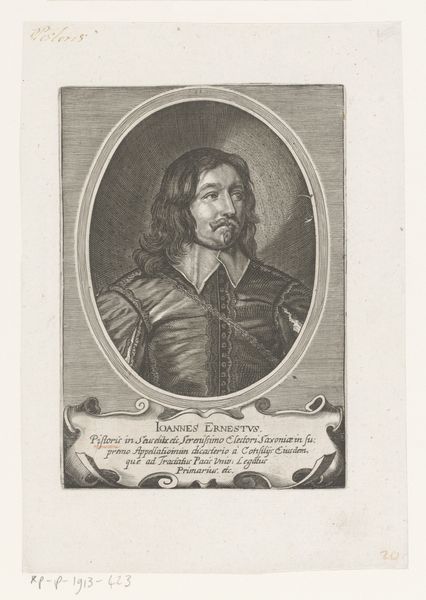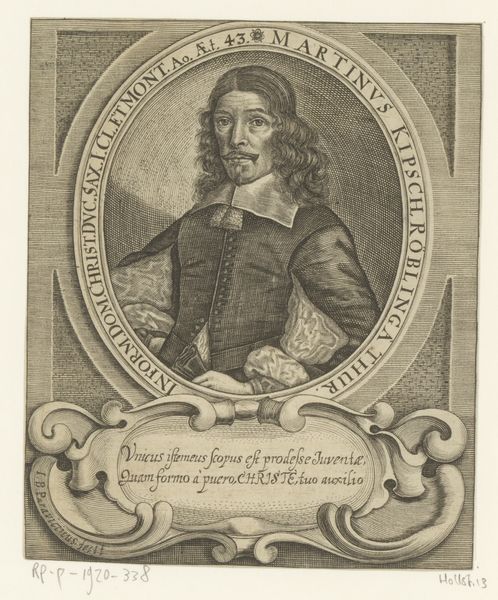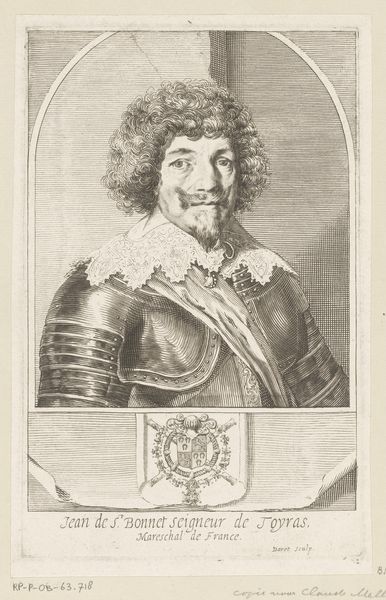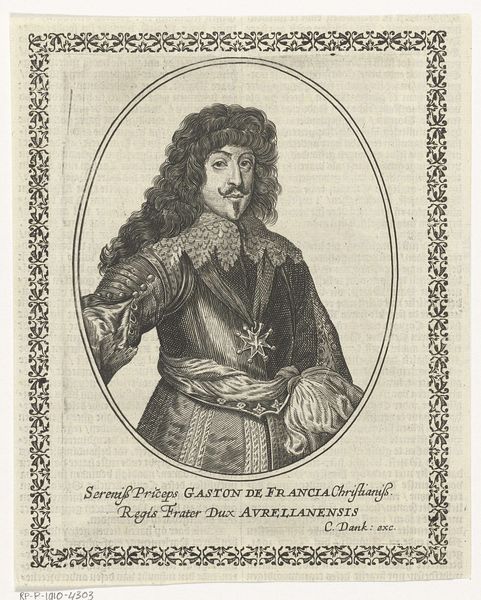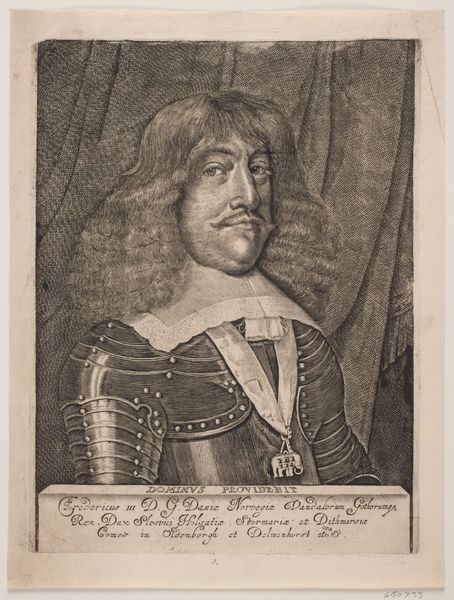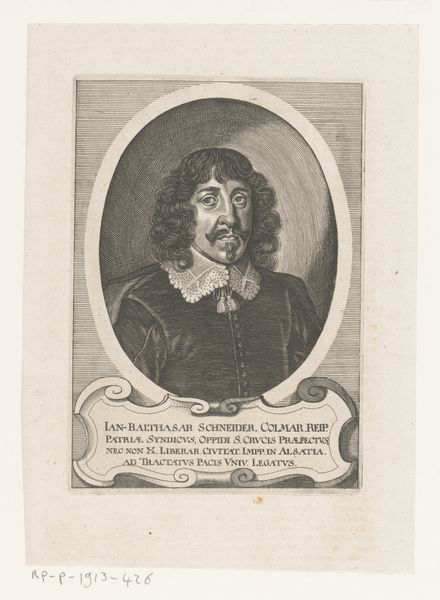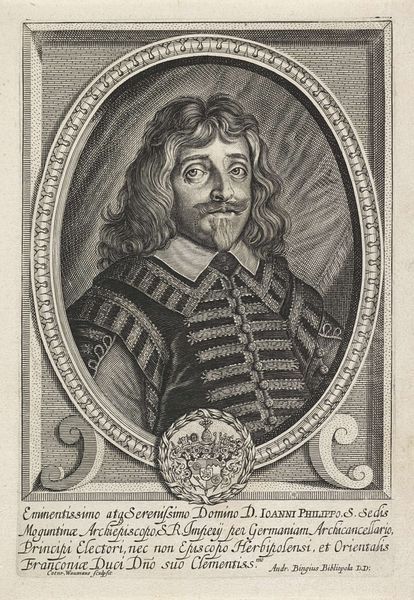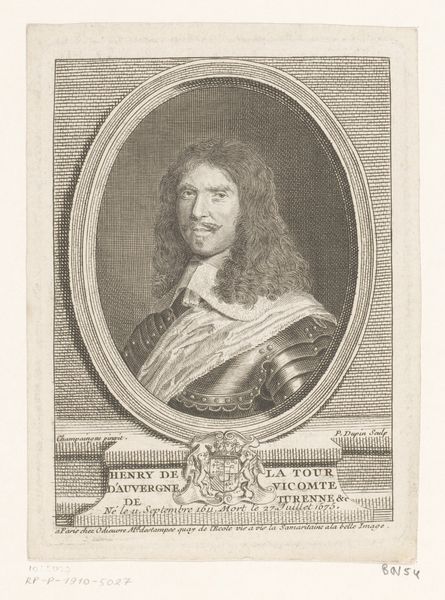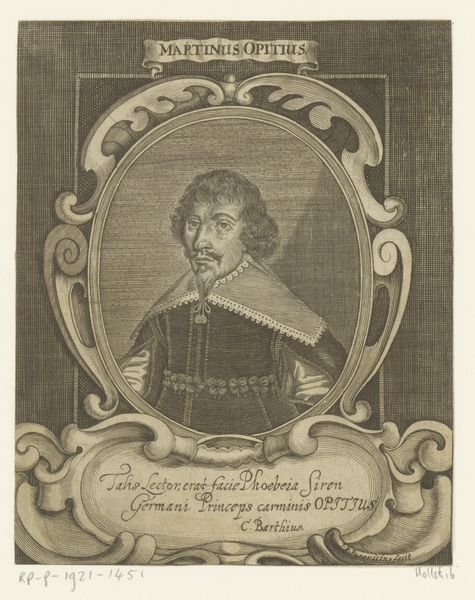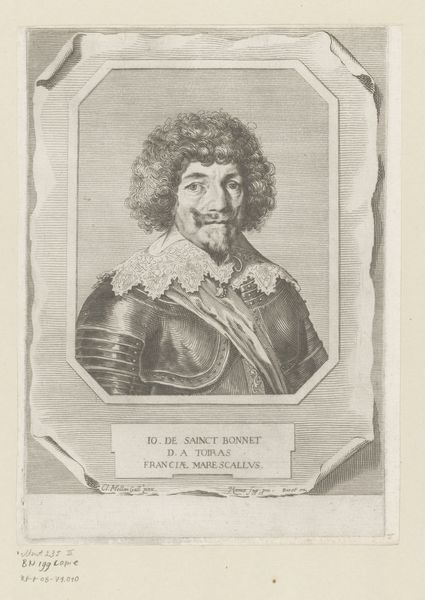
print, engraving
#
portrait
#
baroque
# print
#
old engraving style
#
traditional style
#
history-painting
#
engraving
Dimensions: height 289 mm, width 192 mm
Copyright: Rijks Museum: Open Domain
Matthäus Merian the Younger produced this engraving of Johann Philipp von Schönborn, likely in the mid-17th century. Such a portrait offers a glimpse into the intricate dance between power, representation, and the emerging public sphere in the Holy Roman Empire. This image is more than a likeness. The elaborate Latin inscription surrounding Schönborn and his prominent coat-of-arms below work together to publicly assert his status as Archbishop of Mainz, Prince-elector, and Duke in Franconia. The meticulous detail in Schönborn’s dress and the overall formality of the composition underscore the importance of projecting an image of authority and legitimacy during a period of intense political and religious conflict. It is worth noting the institutional function of the print, both as a tool for disseminating Schönborn’s image and as a collectible object that reinforced social hierarchies. To fully understand this portrait, we might turn to primary sources like official documents and personal correspondence. These could shed light on the political climate in which it was produced. We might also consult scholarly literature on the history of printing, portraiture, and the Holy Roman Empire.
Comments
No comments
Be the first to comment and join the conversation on the ultimate creative platform.
